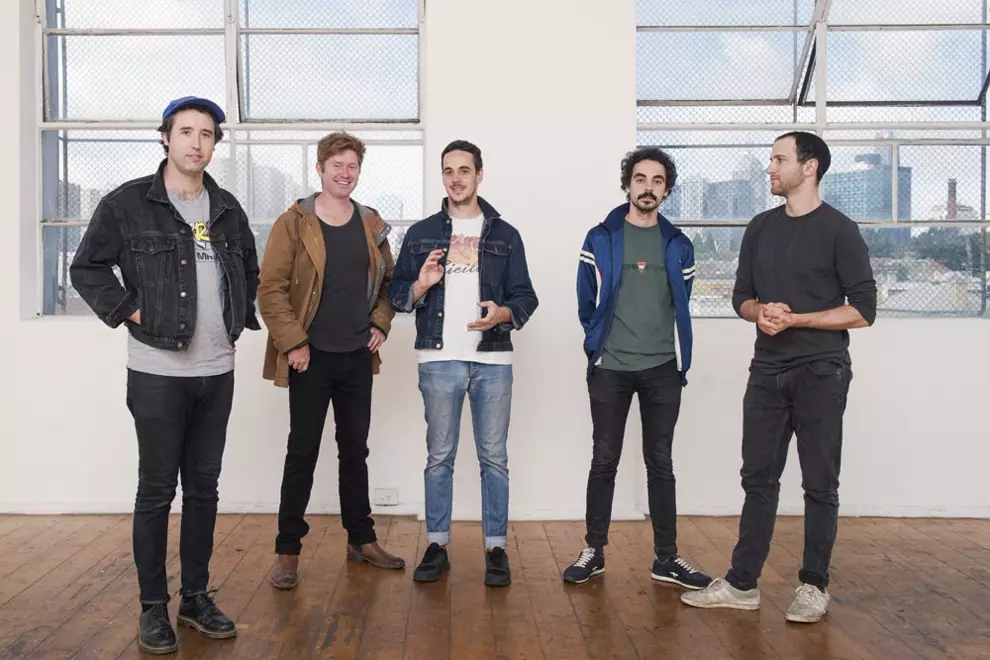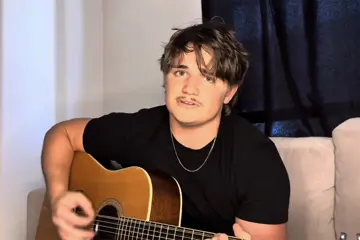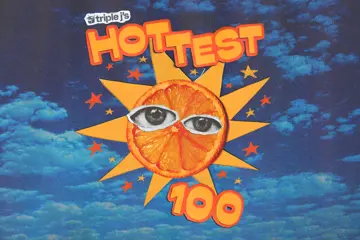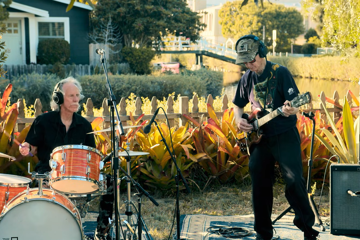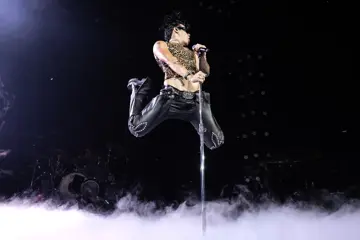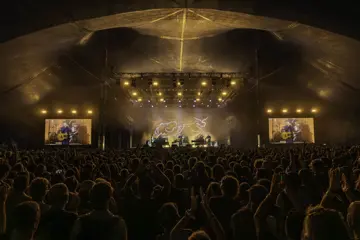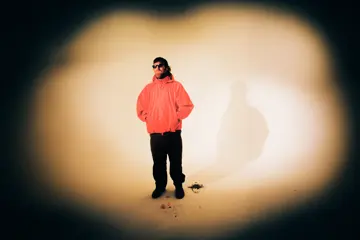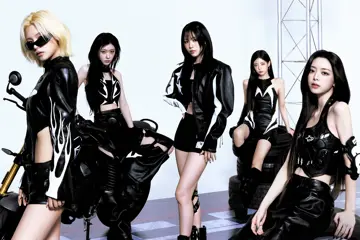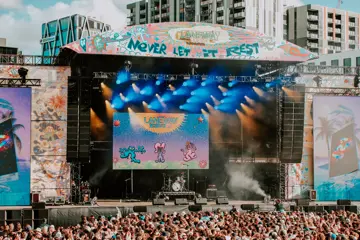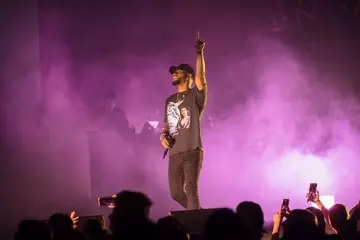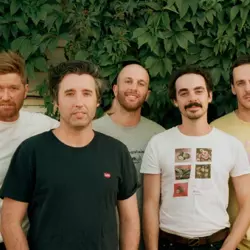 Rolling Blackouts Coastal Fever
Rolling Blackouts Coastal FeverGuitarist/vocalists Tom Russo and Joe White of Rolling Blackouts Coastal Fever - two of the band's three songwriters - pull up chairs at Melbourne's Retreat Hotel, a pub not far from the Sydney Road rehearsal space where the band recorded their first two EPS, 2016's Talk Tight and The French Press. The pair are happy to speak about their debut LP Hope Downs, just don't ask where it was recorded.
"We had to sign a clause that said we wouldn't [reveal where it was recorded]," White offers. "I'm not sure how specific or not specific we're supposed to be. Let's just say it was near Bellingen."
"It was a friend of a friend's house on the hinterland outside of Coffs Harbour, in the bush, up a mountain," Russo says. "I hope that's not too specific. It's beautiful there. And they want to protect it from the world, from everything."
Recording Hope Downs, the band had simple goals: recording in a house, not a studio, they wanted it to sound live with instruments picked up by room mics. It's an approach that suits the humility of White's description of their sound. "It's just big bass and drums with jangly guitars over the top. We're not reinventing the wheel in any way."
Don't miss a beat with our FREE daily newsletter
Russo, White, and co-songwriter Fran Keaney have been at this for years. Where Melbourne's music scene is full of transplants, they're very local: Russo grew up in Brunswick, White in Essendon. The trio cut their teeth playing together in "questionable teenage garage bands", their early-20s spent in various short-lived outfits (Aurora, Sports Club, World Of Sport). When they formed Rolling Blackouts Coastal Fever (then known as Rolling Blackouts) in 2013, they had "as little ambition and direction as in [previous] bands", Russo admits.
But then Keaney, who started out on drums, switched to guitar, his previous role replaced by Marcel Tussie. Now the band had a better rhythmic foundation at the back with three guitarists out front and "more energy". The initial goal, White says, was "to make sweet, melodic pop songs - songs in major keys, with really bright melodies - that could be played anytime". The trio were "more disciplined about songwriting" than they'd been previously, Russo says. "We knew what we wanted. We always thought of it as 'happy/sad', bright melodies with melancholy lyrics, mixing sunniness with darkness."
By the time RRR and PBS started to give the band their "very first spins", the demeanour among the band's members had changed: "We felt confident enough in the songs that we thought, 'Well, yeah, they should be getting played on the radio'," says White. From there, things turned from hobbyist and ambitious into a bona fide thing: "When things started getting played on the radio, and we ended up getting a manager, and labels floated interest, we were forced to get more professional about it, to take it more seriously," Russo says.
On the way, their name ballooned from Rolling Blackouts to Rolling Blackouts Coastal Fever to dodge the online threats of a tiny American band of the same name. "We just decided to add some more words; make it sound as absurd and melodramatic as possible," Russo says, a "short-sighted decision" that has "haunted" them since. "We have the longest, most unwieldy band name you've ever heard. Every time someone asks us what we're called, we just sigh and end up explaining the whole story."
The presence of 'Coastal' in their band name - and the sunny qualities of their jangly guitars - have led to many assumptions (especially from overseas) that the band are surfers. "We're not surfers, obviously; we're from Melbourne," Russo deadpans. A more common critical response connects them to a particular strain of musical Australiana. "We get compared to those big pop figures of the '80s: The Go-Betweens, [The] Triffids, Paul Kelly," Russo says. "Melbourne, and its scene, has a lot of recognition overseas, so there's this view that we're coming from a creative hotbed. But, because we've got sunny guitars, lots of reverb, we get a lot of references to summer. And then, to surfing."
The lyrics on Hope Downs don't scan as particularly sunny. "These songs were written during a very disillusioning time with the world. It felt like everything was getting weirder," Russo says, "like the sands were shifting underfoot, and we were trying to get through that."
"We didn't come at it from this concept overtly, but we created a fake world that all the characters in these songs exist in," White furthers. "They're feeling [this] disillusionment and they all have their own little stories within this world. Call it a country town, call it whatever you want, but it's a snapshot of a place, a community, that encapsulates what's really going on in the world outside of it."
"It's hard," Russo says, "to tackle these huge political subjects, or the depressing things that are happening in the world. We looked at it from the perspective of these little characters, looking to find something to hold onto in this really dislocating time. Smaller characters trying to make their way through a giant world, struggling to survive in the face of what's going on."
Writing the tunes for the album, the band were emboldened by the deal they signed with Sub Pop, the label forever associated with grunge. "You know that if you write a song you love, it's going to get heard around the world, not just on RRR," White marvels. For a band who started with little to no ambition, Rolling Blackouts Coastal Fever are amazed at where they've ended up. "We never expected to play overseas festivals, do a live session at KEXP, [or sign] with Sub Pop," Russo admits. "We had such low expectations starting out, it's kind of surreal where we are now."

